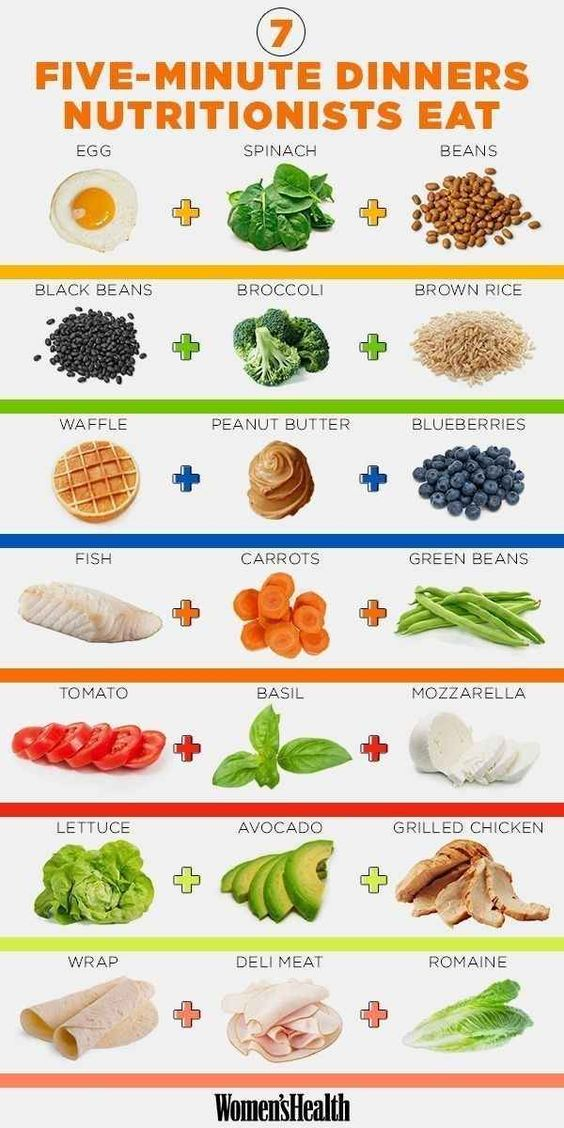4 Small Steps to Feeling Better

The hustle and bustle of daily life can take a toll on us. Between our busy schedules, responsibilities, and relationships, sometimes we may not feel able to take care of ourselves in the way we need. When stress and anxiety build up and aren't managed, they may lead to a depressive episode. When this happens, what can we do?
Maybe you’ve considered starting therapy but don’t have the time or money to invest right now, or just don’t feel ready yet. Perhaps you’re feeling overwhelmed and exhausted mentally and physically, making you feel helpless or hopeless about improvements to your mental health.
Unfortunately, there isn’t a straightforward 1-2-3 system when it comes to mental health. Everyone is different, and we respond to treatment options in our own unique ways. However, there are some basic practices that everyone can adopt to support themselves during a tough time. If you are feeling emotionally agitated, numb, stressed, or shut down, here are a few tips that can help you make slow, gradual changes to feel better before trying therapy.
Before reading this, please remember that improving your mental health is a journey made of small steps. It is not about achievement, but about wellness. We hope these tips will be useful for you, but don’t feel like you have to do them all at once. Try one thing at a time, and give yourself time to focus on it before incorporating other practices. The most important thing is to not overwhelm yourself!
1. Mindset & Affirmations
When we’re feeling low, it’s easy to allow our negative thoughts and feelings to consume us. We might feel like we are a failure, a burden to others, and unworthy of love and care.
Recognizing this in yourself is the first step to changing this mindset. Being mindful of our negative thought patterns helps us learn about what they are, gives us insight into ourselves, as well as how to resolve and overcome them.
As a human being, you are inherently worthy and valuable. There is nothing more precious on earth than life itself.
Being human also means that we are supposed to feel both positive and negative emotions - these are all normal parts of the human experience. In saying this, acknowledge that your thoughts and feelings are not who you are, they are just experiences and expressions that you have.
It is okay to feel overwhelmed with life. It can be a lot to manage! Give yourself space and grace as you deal with these challenges, and take things one day at a time. Focusing on the present will help you feel a stronger sense of control and accomplishment, and help manage anxiety about the future.
If you are struggling with mindset, try to repeat these affirmations daily:
- I am inherently worthy of love and care.
- I wouldn’t have made it this far if I wasn’t able to handle what is ahead of me.
- I am loved for who I am, just for existing.
- Making mistakes does not make me flawed, it just means I’m human. I am able to learn and grow for next time.
- I am allowed to feel negative emotions. They are normal, and I do not have to be afraid of them.
- Negative emotions help me become stronger and more resilient.
- I am capable.
2. Taking Care of Yourself Physically
It’s no secret or surprise that our physical bodies directly influence our mental health. When we become sick with the cold or flu, not only do we get physical symptoms like a cough or runny nose, but our brains also feel dull, tired, and sluggish. When we can’t function in our physical bodies in the normal way that we’re used to, it can make us easier to irritate, frustrate, or anger.
Taking care of our physical bodies and our basic needs is important for our mental health. Here are the basics to focus on if you are struggling right now:
Physical Activity
There are so many scientific studies that prove that physical activity changes our mood. Movement gets the blood flowing, brings more oxygen into the body and brain, and strengthens our muscles and organs. It also raises endorphins, which is a hormone that makes us feel happy. Just 10 minutes of physical activity can help improve mood drastically. When we feel good in our bodies, we function and think better.
Dr. Gabor Maté, a speaker, bestselling author, and family physician of 20 years is renowned for his work and expertise on addiction, trauma, childhood development, and the relationship between stress and illness. He says that emotional trauma is a major source of physical illness - it can cause cancer, autoimmune conditions, and other chronic diseases (source).
Dr. Maté’s profound research on the connection between stress and disease tells us that the body bears the consequences of stress. While we may mentally forget, our bodies store all our trauma. Exercising is the number one recommended way to work this out of our bodies. Sweating our stress is a very real thing!
10 minutes of movement - dancing, walking, playing with your dog - is all we need to feel a difference. Remember that movement can be easy and light, it does not have to be a full gym session.
Some exercises to try:
- Stretching
- Yoga
- Light walk indoors/outdoors
- HIIT workouts
Nutrition & Hydration
Getting proper nutrition and hydration supports our body’s basic functions. Other than nourishing our bodies, fresh fruits and vegetables also help us feel awake and energized compared to processed or fast food. Especially when we already feel sluggish, low, and unmotivated, proper nutrition is very important in helping us function better.
Studies in recent years have shown that there is a correlation between our mental health and the gut - this is called the Gut-Brain Connection. Have you ever “gone with your gut” when making a hard decision? This is because the gut acts as “a second brain” with its ability to communicate with the brain through the Enteric Nervous System (ENS).
If you’ve ever eaten a heavy meal and felt tired and unmotivated afterwards, you’re experiencing the Gut-Brain connection. When we eat foods with little nutritional value, it zaps our energy and make us slower and more moody than usual.
Try replacing this with healthier choices. Some popular and affordable food options that have high nutritional value are:
- Spinach
- Eggs
- Lentils
- Bananas
- Sweet Potatoes
- Nuts and Seeds

Sleep & Rest
Rest is essential to the human body - so much so that we need it for survival as much as food and water. Have you noticed how hard it is to go through a school or work day when we didn’t get restful, quality sleep the night before? That’s because other than removing toxic byproducts in our brain, sleep also creates and maintains neuropathways that help us concentrate and make new memories.
Sleep affects almost everything in our bodies - from the brain, heart, lungs, mood, metabolism, immune function, and disease resistance (source). Consistently having poor sleep increases our chances of getting depression, along with multiple other health disorders.
It is recommended to get at least 8 hours of sleep each night. If you’re having trouble sleeping, practicing good sleep hygiene can help. Take a look at this quick video about sleep hygiene.
Sunlight also plays a big role in sleeping as it helps regulate our circadian rhythm (the body’s internal clock). However, sunlight can be scarce in the dark winter months which can lead to seasonal affective disorder (SAD), a type of depression that happens during the winter.
Try to get some natural light for 10-15 minutes right when you wake up in the morning. Not only does this help balance our internal clock, it will also lift your mood and set the tone for your day.
3. The Importance of Routine
Schedules and routine can seem like a pain sometimes. Who doesn’t want to feel like they have ultimate freedom in their lives? However, routines are really beneficial to our mental health because it gives us structure and balance in daily life. Routines give us a sense of familiarity and stability. This doesn’t mean that our entire day needs to be schedule-packed, though. Simply having a morning and evening routine can make a huge difference to our mood because it sets the tone for how we start and end our days.
Keep in mind that a morning or evening routine doesn’t need to be extensive or elaborate, it is just a self-care routine to prepare us for the day ahead, or for a good night’s rest.
A simple morning routine can look like this:
- Wake
- Snooze for 10 minutes
- Wake up again
- Drink water
- Brush and groom
- Make coffee or tea
- 10 minutes of self-care activities (meditate, journal, exercise, read, or sit in silence)
- Start getting ready for the day
A simple evening routine to wind-down can look like this:
- Brush and groom
- Put your phone away
- 10 minutes of self-care activities (meditate, journal, exercise, read, or sit in silence)
- Sleep
We benefit the most from sleep routines when we sleep and wake at the same time. If you are incorporating this, try setting a set time for each morning and night.
4. Using Free Online Resources to Your Advantage/Relate To
With the internet, knowledge and free resources are everywhere. In our modern lives, we consume media on a regular basis, if not daily, so why not make those resources work for you rather than simply scrolling mindlessly through social media?
Almost everyone is on Instagram, and there are many accounts on social media that focus on mental health, relationships, health and nutrition, goal setting, and more. Find a few accounts in which their content speaks to you so when you scroll, you feel like your mental health is being supported.
Here are a few resources:
- Canadian Mental Health Association (@cmhafoundation)
- Headspace (@headspace)
- Dear My Anxiety (@dearmyanxiety)
Many of us who are struggling with mental illness can feel isolated and alone, making it hard to relate to others. Podcasts are a great, free way to connect without the pressure of going to socialize with others. Podcasts can help us learn new things, hear about others’ stories, and get new insights and perspectives on topics that interest us.
Some popular podcasts that talk about mental health, wellness, and life include:
- On Purpose with Jay Shetty (YouTube Link - Free)
- Jay Shetty is a former monk whose goal is to make wisdom go viral. His guests include well-known figures such as Selena Gomez, Will Smith, and Kobe Bryant to talk about mental health, wellness, and mindset.
- The Impact Theory Podcast (Website Link - Free)
- Tim Bilyeu is the founder of Quest Nutrition and a successful businessman. His mindset-focused interview shows teach anyone aspiring to greatness the secrets of success, whatever success may look like to them. Covering topics on relationships, mindset, habits, and more, his guests include acclaimed figures such as Robert Greene, Tony Robbins, and Mark Zuckerberg.
Connecting doesn’t have to be only online. Sometimes reaching out to a trusted friend or family can help you feel better. Human connection can be the missing link when it comes to our mental health.
A Final Note on this Journey
A reminder that dealing with mental illness is extremely difficult. While these are all tips that can help you feel better, it doesn’t mean that you have to do them all at once. Please remember that this isn’t about achievement, but about wellness.
If you’re ready for some professional support, we can help. Each year, thousands of people seek therapy or participate in some kind of therapy group.
Here are some services that can help:
exclusively written for familycentre.org
by Jessica Tran
